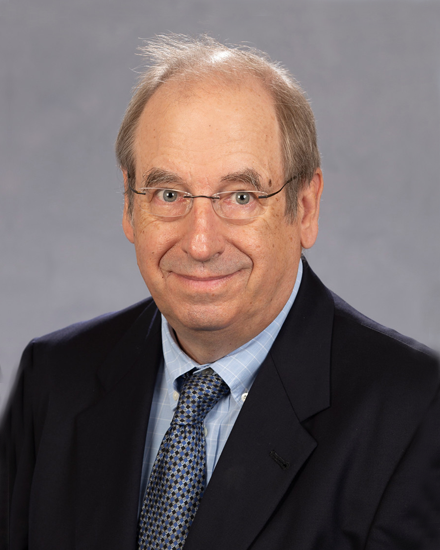
Roles
Professor and Chairman of Microbiology and Immunology
-
Biography
Dr. Thomas Malek received his Ph.D. in 1977 after training with Dr. Katherine Knight at the University of Illinois Medical School in Chicago. After postdoctoral training with Ethan Shevach at the NIH, he joined the faculty of the University of Miami in 1985, where he currently is Professor and Chair in the Department of Microbiology and Immunology. His research has a long-standing focus on the role of the IL-2 receptor (IL-2R) in T cell development and function. In 2002 his group provided direct evidence that IL-2 receptor signaling is essential for regulatory T cells (Tregs). More recently his group established that low IL-2R signaling effectively supports Tregs, but not T effector cell function, providing a scientific underpinning for the use of low-dose IL-2 to boost Tregs in the context of autoimmunity. His group also developed a new IL-2-based biologic to improve the efficacy of this therapy. Dr. Malek has published 180 peer reviewed research papers and has frequently reviewed grants for the NIH, including serving twice as a member of NIH study sections. He currently serves on the Board of Scientific Counselors for National Heart Lung and Blood Institute. His research program has been continuously funded from the NIH since 1987. Current research from his lab investigates the cellular and molecular mechanisms by which the IL-2R contributes to Treg and T effector cell function, with an emphasis on translating these findings in the context of autoimmunity and cancer. -
Education & Training
Education
Post Graduate Training
-
Honors & Awards
No result found
-
Teaching Interests
Dr. Malek is committed to training the next generation of scientists and has served as the mentor for 25 Ph.D. or M.D./Ph.D. students and 17 postdoctoral fellows. Past trainees hold positions as Professor at McGill University, Professor at Duke University, Vice-President at Novartis, Research Scientist at Beckman-Coulter, Lecturer at Kindai University, Senior Investigator at Novartis Institutes for Biomedical Research, Special Research Scientist at Columbia University, Scientist at Sanofi Pasteur, Assistant Professor at the University of Miami, Corporate Officer at Repertoire Genesis, Assistant Professor at Moffitt Cancer Center, and Scientist at Sorrento Therapeutics. Most recent trainees are doing their postdoctoral fellowship at Washington University at St. Louis, University of California San Francisco, and Johns Hopkins. Dr. Malek is the Principal Investigator of a newly awarded T32 training grant in Translational Immunology from the National Institute of Allergy and Infectious Diseases. -
Research Interests
One major aspect of our current research is to better define the mechanisms by which regulatory T cells (Tregs) contribute to self-tolerance, with a focus on the role of IL-2R signaling. Mouse models are used to establish the relevance and inter-relationships of Treg heterogeneity to support self-tolerance and to define the role of IL-2R signaling in the development and homeostasis of Treg subsets. Crispr/Cas9 is used to modify gene expression in human Tregs to define processes by which Treg function and expansion are regulated through T cell receptor and IL-2R signaling. This effort also includes a substantial translational component. A key finding from our group is that IL-2R signaling thresholds differ substantially for Tregs vs. T effector and memory cells. Based on this work, ultra-low-dose IL-2 is now being tested in the clinic and provides a new strategy to treat autoimmune diseases, as the IL-2-dependent increase in Tregs targets the underlying cause rather than the symptoms of autoimmunity. These findings are currently being leveraged in mouse preclinical studies and in human studies to determine: 1) the cellular and molecular basis related to the IL-2-dependent factors that contributes to Type 1 diabetes (T1D); 2) the optimal conditions and mechanisms by which low-dose IL-2 selectively supports Tregs, leading to suppression of autoimmunity; and 3) the effectiveness and mechanism by which ultra-low-dose IL-2 benefits patients with T1D in novel clinical trials. This latter effort depends on a close and extensive collaborative effort with members of the Diabetes Research Institute. We have also developed a patent-pending long-lived novel IL-2-based biologic that shows promise to extensively boost Tregs at low-doses and T effector and memory cells at high doses. This biologic has been licensed to Bristol Myers Squibb and is currently in a phase 1 clinical trial. The other major aspect of research in our lab is to understand the for IL-2 in programming in T memory responses. A key new finding is that a brief encounter of high levels of our long-lasting IL-2 biologic during immunization substantially amplifies T effector and T memory responses. This finding is being leveraged to develop new strategies for cancer immunotherapy. Pre-clinical studies indicate this IL-2 biologic supports robust anti-tumor immunity as a monotherapy or when combined with a tumor neoantigen vaccine. Current work is aimed at understanding the mechanism leading to robust anti-tumor responses and to test this approach for cancer immunotherapy in the context of checkpoint inhibitors. -
Publications
Disclaimer: The information presented in this section has been consolidated using AI and machine learning technologies. While every effort has been made to ensure accuracy, errors may occur. If you identify any inaccuracies, please use this link to inform our data team. Your feedback is greatly appreciated and helps us improve the quality of our content.
-
Copyrights & Patents
-
Professional Activities
No result found

